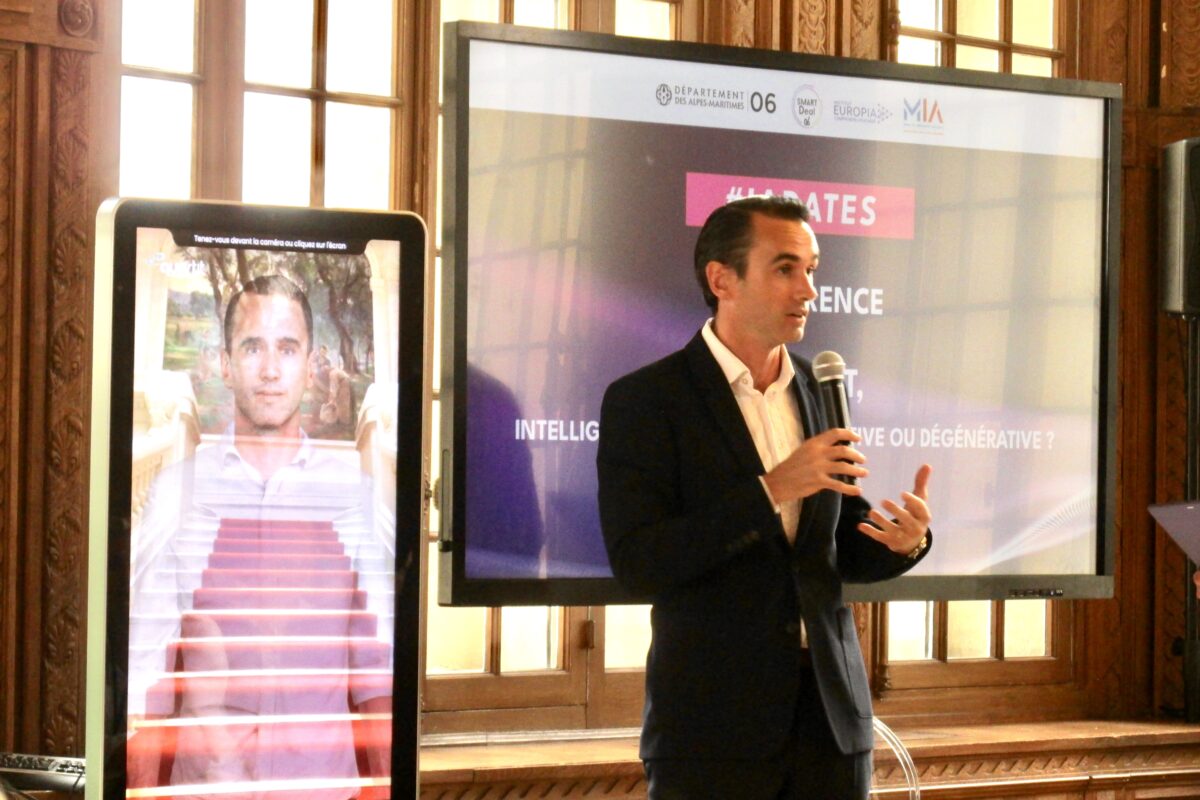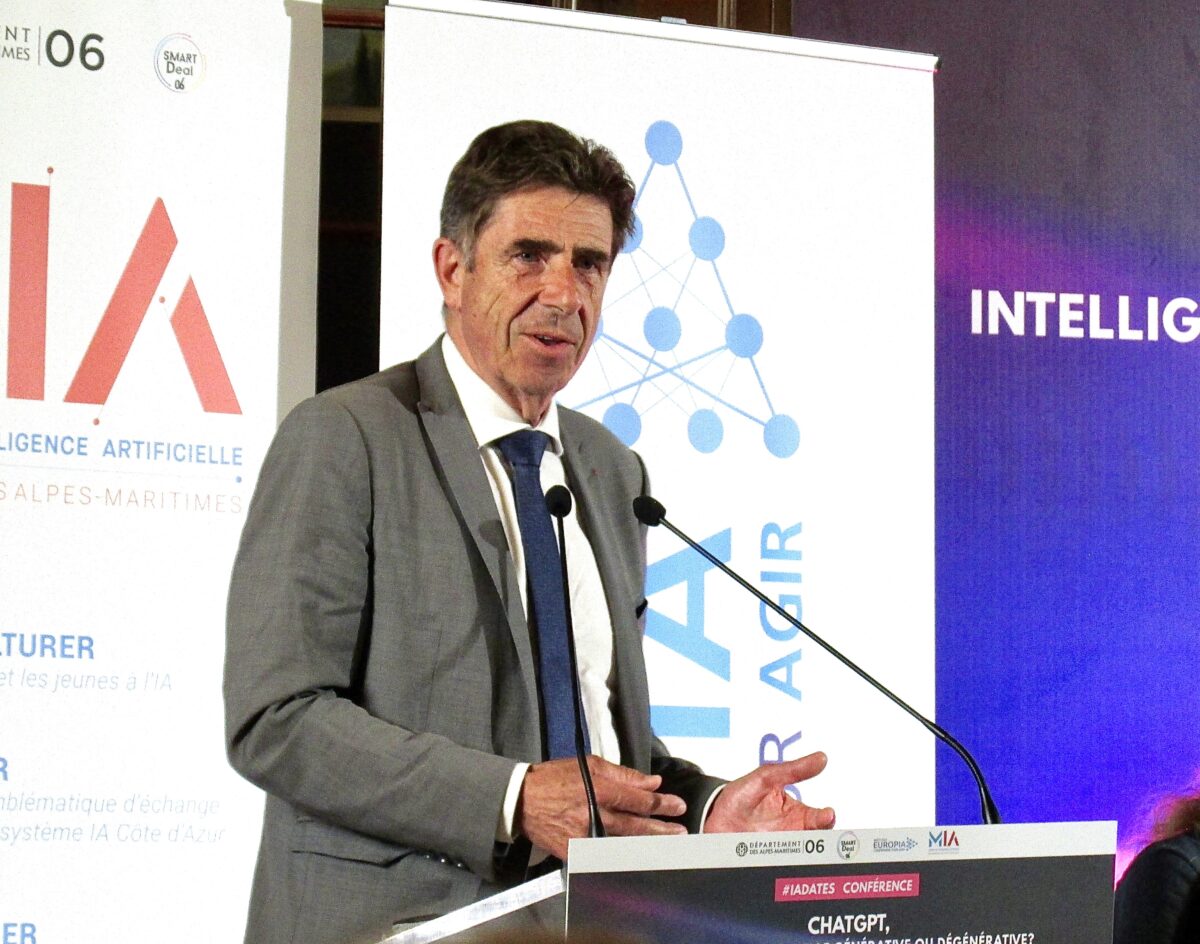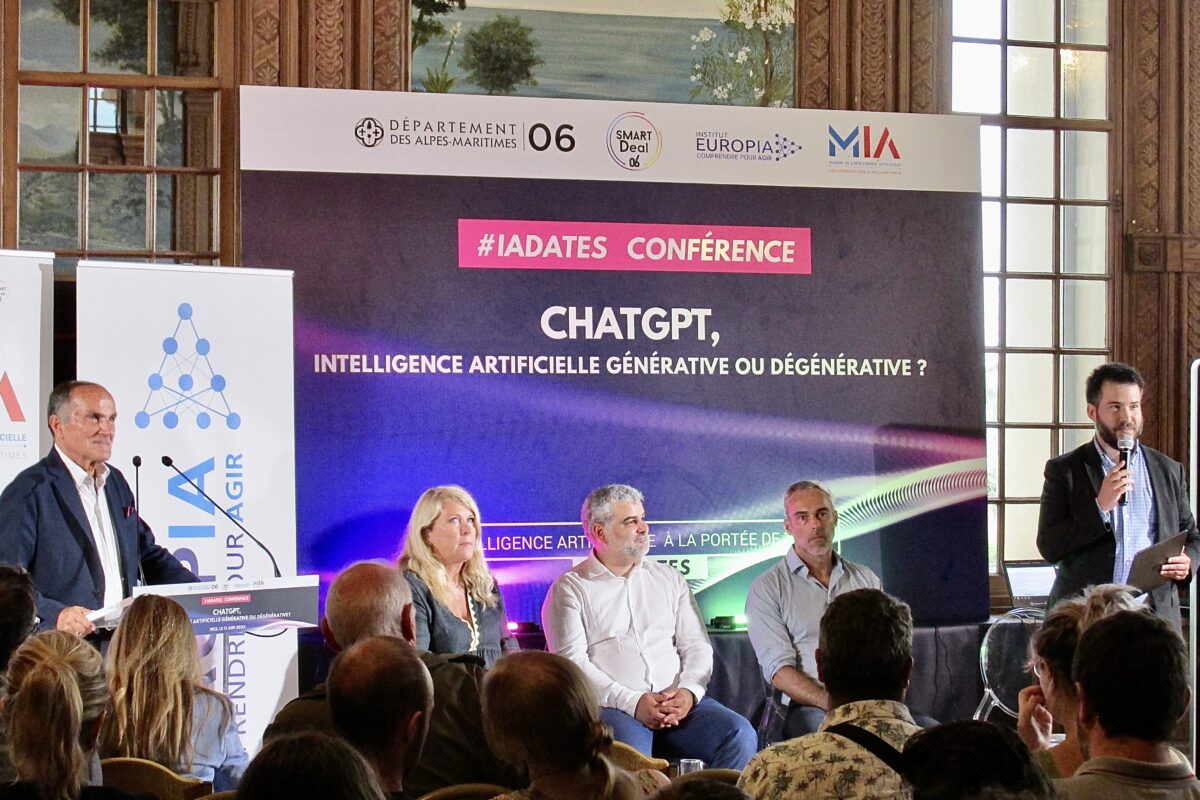This Tuesday, June 13, the Palais des Rois Sardes hosted one of the AI Dates conferences. The ChatGPT bomb, placed in users’ hands since November 30, 2022, has sparked both fascination and concern. What should we take away from this conference?
Marco Landi, president of the expert committee of the smart deal and the EuropIA Institute, inaugurated the session by stressing the need to establish an artificial intelligence (AI) project on a European scale. “We need a great European project,” he proclaimed before handing over to Laurence Devillers, a professor of applied computer science to social sciences at Paris-Sorbonne University. The guest speaker captivated the audience with a precise and brief presentation of artificial intelligence. She notably reminded us that today’s AI is the result of “a slow succession of improvements.” For her, it is necessary in the field of AI to follow this triptych: ethics, laws, standards. One of her goals is to support current users and those of tomorrow. This is why she engages, with her Blaise Pascal Foundation, with younger audiences through educational capsules.
During the roundtable discussion, speakers included: Jérôme Béranger, CEO of GOODALGO, researcher at Paul-Sabatier University Toulouse III, Ethics & AI expert for the EuropIA Institute, lecturer, and essayist, Alexandre Ozararat, head of the Nice office of Grant Thornton France in charge of innovation, chartered accountant and auditor, and Isabelle Galy, Director of the Maison de l’Intelligence Artificielle. All guests discussed the various challenges and risks posed by ChatGPT. Emphasizing the relationship with humans, they also questioned the notions of knowledge and truth disrupted by ChatGPT.
What is ChatGPT?
Developed by the company OpenAI, the ChatGPT software was introduced to the market on November 30, 2022. ChatGPT is a virtual assistant that uses a generative AI to converse in natural language. It relies on the distributional hypothesis, which suggests that words appearing in similar contexts tend to have a similar meaning. Thus, the illusion of a real conversation is disconcerting.

Between Fascination and Concern
If artificial intelligence fascinates as much as it concerns, it’s because it truly blurs our landmarks. This is further demonstrated by the diverse audience present at the conference. From students to the elderly, the interest was fully shared. In her presentation, Laurence Devillers detailed the main risks associated with AI. She particularly emphasized that one should not be tempted to compare artificial intelligence to human intelligence. Taking the example of an apple, she illustrated her point: AI will be able to mention the apple’s acidity, sugar content, etc. However, it will never truly know its taste. AI’s “knowledge” is purely the product of calculations that give it a generative power. In no way is AI capable of reflective intelligence.
A certain tendency toward anthropomorphism concerning AI leads to three major dangers. The first being what Laurence Devilliers calls “transfer.” “Transfer” occurs when a human is tempted to consider AI as their equal. This leads to the risk of “affect”, which implies the possibility of developing feelings for artificial intelligences. Finally, there is the possibility of apprehending a certain peril to our own “moral qualities”, the ultimate danger.
“Ethics is a way of thinking and not a tool!”
Laurence Devilliers
Towards a Linguistic and Cultural Crisis?
The over-representation of English in the realm of AI particularly concerns our guests. Indeed, there is a linguistic risk in using a monolingual software. Laurence Devillers therefore sounds the alarm concerning the sustainability of the French language, which she notes, however, is not the most threatened. She thinks of languages like Norwegian, which truly tends to disappear in the face of English. Undoubtedly, the use of ChatGPT and AI in general requires appropriate legislation and standardization. The challenges are multidimensional: geopolitical, linguistic, economic, societal… The imperative for awareness is undeniable.
The IADates: a series of conferences guided by the smart deal
Since 2018, the Departmental Council has implemented a digital transition plan across its territory, the smart deal. Aware of the current and future impact of artificial intelligence, the Department of Alpes-Maritimes aims to help its citizens understand this new world. The goal is twofold: to provide a better service to users and address the challenges of the territory to improve the quality of life of residents. In line with the European Green deal, the project is strongly supported by Department President Charles Ange Ginésy. According to his own words, it is a “necessity to embrace the digital revolution we are in.” He believes that not keeping up with this revolution means “undergoing” it in the near future.
Charles Ange Ginésy thus invites the department and the European Union to develop research and innovation in the field of AI. The aim is not to submit to American and Chinese models, which are currently leaders in the field. Undoubtedly, it’s about the country’s digital sovereignty. “We are in a digital battle!” asserted Marco Landi, president of the expert committee of the smart deal and the EuropIA Institute.



